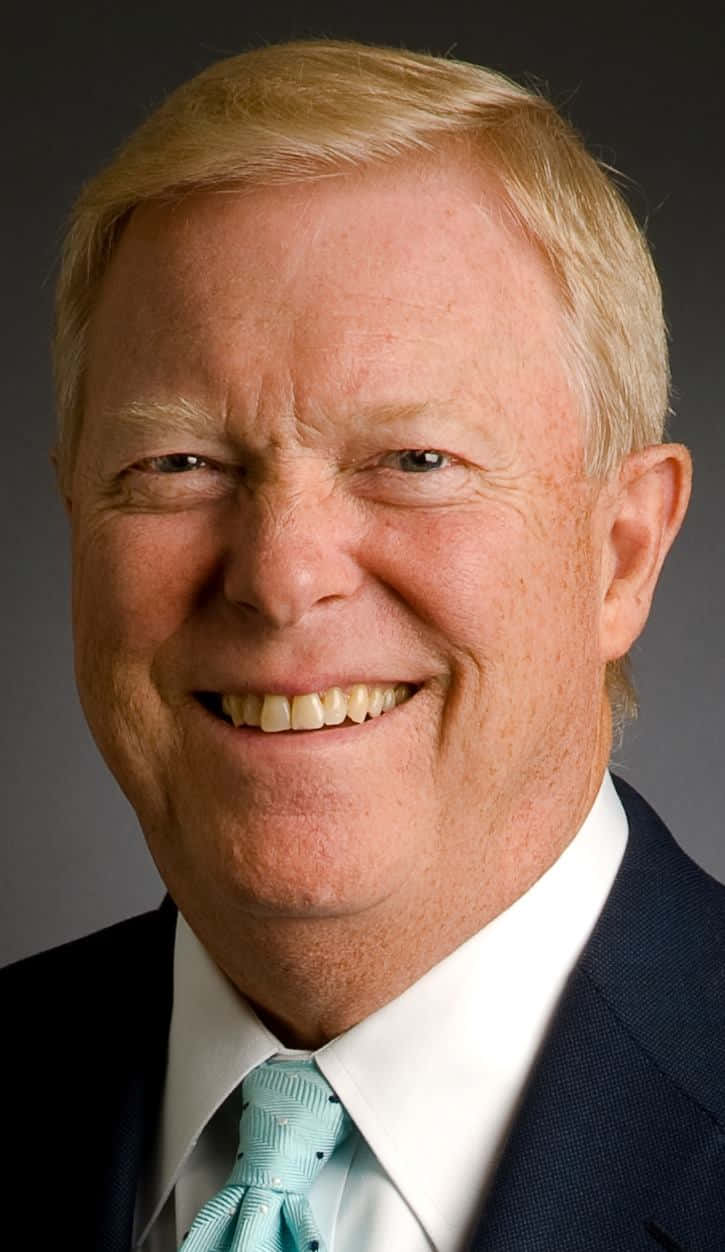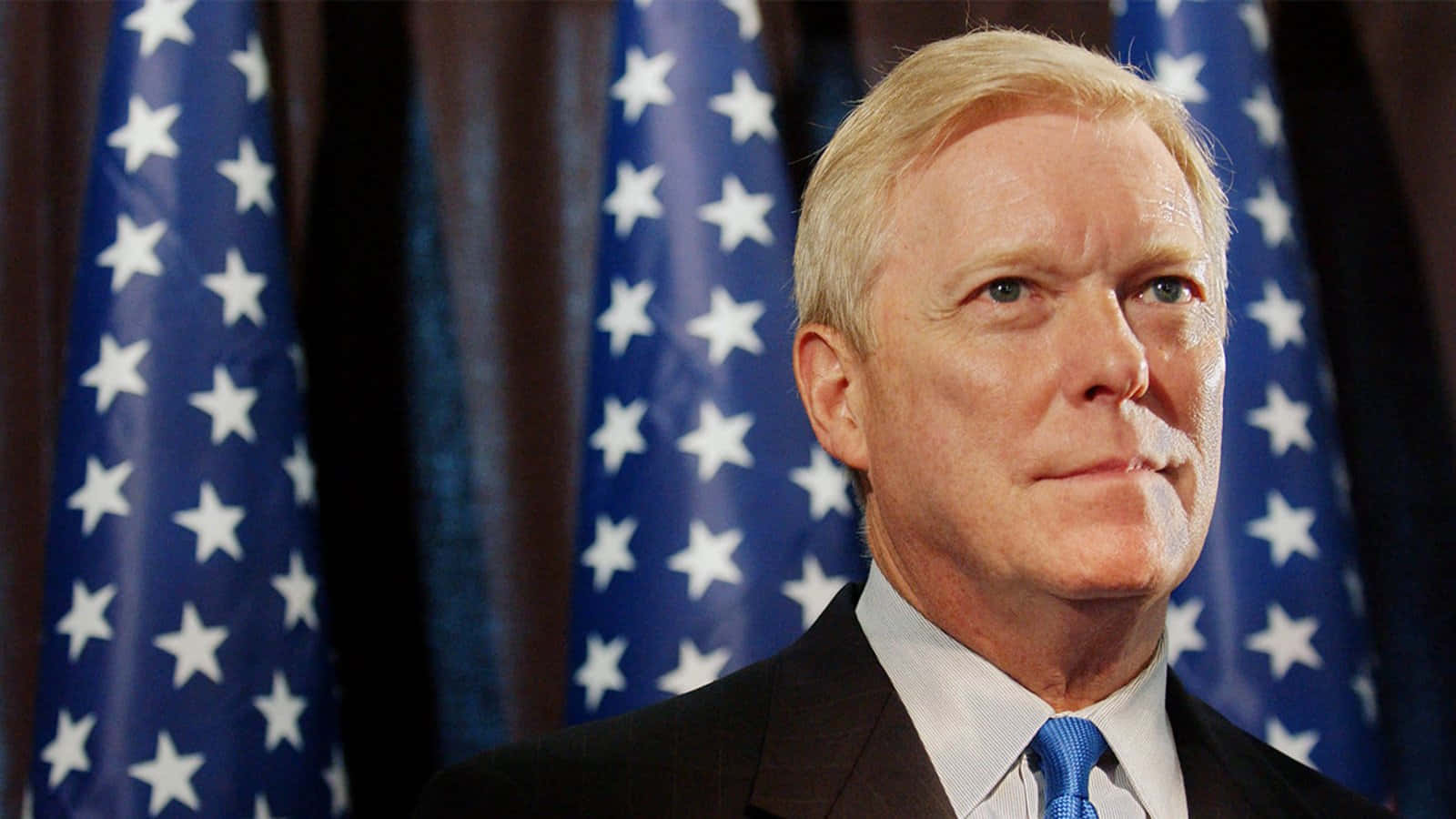When we talk about big names in finance, especially those linked to pivotal moments in economic history, Richard Fuld often comes up. He was, as a matter of fact, the very last chairman and chief executive officer of the well-known investment bank, Lehman Brothers. Many people, quite naturally, wonder about his financial situation, particularly after such a significant event as the 2008 global financial crisis. So, what exactly is Dick Fuld's net worth? This question, it's almost, on the minds of many who recall that turbulent period, and we will explore the details of his wealth, the sources behind it, and how it compares to other figures in the financial world.
Understanding the wealth of someone like Richard Fuld involves looking at various aspects of his career and the financial landscape he operated within. His story, you know, is deeply intertwined with one of the biggest corporate bankruptcies in United States history, a situation that, in a way, sent ripples across the entire globe. This article will break down the numbers, giving you a clearer picture of his estimated net worth and the path he took to accumulate it. We will, in fact, delve into the figures that have been reported over the years, giving you a comprehensive view of his financial journey.
For those curious about the personal fortunes of Wall Street titans, the specifics of Dick Fuld's net worth offer a fascinating case study. We will examine the estimates from different sources, giving you a sense of the range and the factors that contribute to these figures. It’s important to remember that, as a matter of fact, these estimates can vary, but they all point to a substantial sum earned over a long and impactful career in banking. So, let’s take a closer look at the financial life of Richard Fuld.
Table of Contents
- Richard Fuld: A Brief Look
- The Lehman Brothers Era
- Understanding Net Worth: How It's Estimated
- Dick Fuld's Net Worth: The Numbers
- Life After Lehman: What Happened Next
- The Legacy and Public Perception
- Frequently Asked Questions (FAQ)
Richard Fuld: A Brief Look
Richard Fuld, often known by his nickname Dick, was born on April 26, 1946. He is an American banker who became very well known for his long tenure at Lehman Brothers. It's interesting to note that the name "Dick" is, in fact, a common nickname for Richard. It's a rather informal way to refer to someone named Richard, much like "Rich" or "Rick." While it might sound a bit unusual to some, it’s just a casual form of a very traditional name, and it carries no negative meaning in this context. His career in finance spans many decades, truly, culminating in his leadership role at one of the world's most prominent investment banks.
Fuld's journey in the financial world saw him rise through the ranks, eventually taking the helm of Lehman Brothers. His leadership during a very dynamic period for the firm shaped its trajectory for many years. He was, basically, a key figure in the investment banking landscape for a long time, guiding Lehman Brothers through various market conditions and challenges. His personal details are quite straightforward, as you can see below, giving us a clear snapshot of his background and role.
Personal Details and Biography of Richard Fuld
| Detail | Information |
|---|---|
| Full Name | Richard S. Fuld Jr. |
| Known As | Dick Fuld |
| Date of Birth | April 26, 1946 |
| Place of Birth | New York City, NY, USA |
| Nationality | American |
| Occupation | Banker, Former CEO of Lehman Brothers |
| Best Known For | Final Chairman and CEO of Lehman Brothers |
The Lehman Brothers Era
Richard Fuld's name is, in a way, almost synonymous with Lehman Brothers, particularly its final years. He spent his entire career at the firm, starting in 1969, and eventually became its chief executive officer in 1994. Under his leadership, Lehman Brothers grew significantly, expanding its global presence and diversifying its business lines. This period, you know, saw the firm achieve great success, establishing itself as a major player on Wall Street and beyond. He was, in fact, at the helm for many years, overseeing its operations and strategic direction.
However, the story of Lehman Brothers under Fuld's leadership also includes its dramatic collapse in September 2008. This event was, basically, a watershed moment, marking the largest corporate bankruptcy in the history of the United States. The failure of Lehman Brothers was not just a major financial event; it was, truly, a trigger for the global financial crisis that followed. This period was, in some respects, one of intense pressure and unprecedented challenges for the firm and its leadership. The decisions made during this time have been, quite naturally, the subject of much discussion and analysis.
During his time as CEO, Fuld's compensation reflected his position at the head of a major investment bank. For instance, his compensation in 2007, just before the crisis hit, was an estimated $34.38 million. This figure, you know, gives us a glimpse into the kind of earnings top executives in the financial sector received during those prosperous times. The compensation was, in fact, a reflection of the firm's perceived success and his role in guiding it. The firm's eventual downfall, however, drastically changed the narrative for everyone involved, yet his earnings prior to that were substantial.
Understanding Net Worth: How It's Estimated
When we talk about someone's net worth, especially a public figure like Richard Fuld, it's essentially an estimate of their total assets minus their total liabilities. Assets can include things like real estate, investments, cash, and other valuable possessions. Liabilities, on the other hand, are debts, such as mortgages, loans, or other financial obligations. So, the net worth figure gives us, basically, a snapshot of an individual's financial health at a specific point in time. It's a calculation that, in a way, tries to sum up all the financial pieces of a person's life.
For high-profile individuals, estimating net worth can be a bit more involved. It often relies on publicly available information, such as salary reports, stock holdings, property records, and business ventures. Financial journalists and specialized publications use these data points to create their estimates. It's important to understand that these figures are, very, often projections and not exact, real-time balances. They are, you know, educated guesses based on the best available information, and they can fluctuate quite a bit depending on market conditions and new disclosures. A person's financial situation is, in fact, always moving, so these numbers are really just estimates.
The sources of wealth for someone like Fuld would typically stem from their career earnings, bonuses, stock options, and any personal investments they have made over the years. For a long-serving CEO of a major financial institution, a significant portion of their wealth would come from their compensation packages, which often include a mix of salary, cash bonuses, and equity in the company. Any subsequent ventures or investments made after leaving their primary role would also, naturally, contribute to their overall financial standing. So, it's a combination of past earnings and current holdings that shape the final number, and this, you know, is how these figures are generally put together.
Dick Fuld's Net Worth: The Numbers
Estimates of Richard "Dick" Fuld's net worth have varied somewhat over the years, but they consistently place him in a very comfortable financial position. According to various sources, his net worth has been estimated to be around $200 million to $250 million. For instance, as of 2024, Richard Fuld's net worth is estimated to be around $250 million. This figure, you know, is quite substantial and reflects a long career in high finance, particularly at the helm of Lehman Brothers. His wealth, in fact, primarily comes from his extensive career at the investment bank and his subsequent ventures.
Other reports, such as those from Celebrity Net Worth, suggest a current net worth of around $200 million. While this is still a very significant amount of money, it does highlight that estimates can differ slightly depending on the source and the methodology used. Projections, too, suggest that Richard Fuld’s net worth in 2025 is estimated to be $230 million, with the majority of his wealth coming from financial investments and a diversified portfolio. This shows, in a way, that his wealth is not static and can change with market conditions and investment performance. So, these numbers are more like a range than a single fixed point.
It is interesting to compare his estimated wealth to his compensation during his peak years at Lehman Brothers. As mentioned, his compensation in 2007 alone was an estimated $34.38 million. This annual earning, you know, contributed significantly to his overall accumulated wealth over his decades-long career. His current net worth, while considerable, is often seen as modest in comparison to today’s top Wall Street executives, many of whom have seen exponential increases in wealth due to the long bull market run. This means, basically, that while he is quite wealthy, others in the financial world have, perhaps, seen even greater gains in recent times.
Life After Lehman: What Happened Next
After the dramatic collapse of Lehman Brothers in 2008, Richard Fuld's professional life took a different turn. While the bankruptcy was, in fact, the largest corporate bankruptcy in the US and triggered the global financial crisis, Fuld himself has stated that he has no regrets about the events that transpired. This perspective, you know, is one that has drawn a lot of public attention and discussion over the years. His stance on the matter has been, quite naturally, a consistent point of interest for those looking back at the crisis. He has, basically, maintained his position on the events.
Following his departure from Lehman Brothers, Fuld did not simply retire from the financial world. His wealth, as noted earlier, primarily stems from his career at Lehman Brothers and subsequent ventures. These ventures, in a way, allowed him to continue his involvement in finance, albeit in a different capacity. While the specifics of these later ventures are not as widely publicized as his time at Lehman, they have, naturally, contributed to his overall financial standing. He has, for instance, been involved in various advisory and investment roles since 2008, continuing to apply his extensive experience in the financial markets.
His continued presence in the financial sector, even after such a significant event, highlights his deep connection to the industry. The estimates of his net worth, even as they fluctuate slightly, account for these later activities. It shows that, you know, his financial life didn't end with Lehman Brothers, but rather, it evolved. His career, in a way, is a testament to resilience, even amidst immense public scrutiny and professional upheaval. He has, basically, found ways to stay active and engaged in the financial world.
The Legacy and Public Perception
Richard Fuld's legacy is, in fact, deeply intertwined with the 2008 financial crisis. As the CEO of Lehman Brothers during its collapse, he became a central figure in the public's understanding of what went wrong. The bankruptcy of Lehman Brothers was not only the trigger for the global financial crisis that followed; it’s also, quite simply, the largest ever corporate bankruptcy in the US. This event, you know, had far-reaching consequences for economies around the world, and Fuld's role in it has been, naturally, scrutinized for years. His name, in a way, evokes strong reactions from many people.
The public perception of Fuld is, basically, often shaped by the narrative of the financial crisis and the perceived responsibility of Wall Street executives. His personal wealth, including his estimated net worth, is often viewed through the lens of that period. It’s a bit of a complex situation, as his wealth was accumulated over decades, but the Lehman collapse cast a long shadow. This means that, you know, discussions about his finances often lead back to the broader questions about executive accountability and the impact of the crisis on ordinary people. His wealth, in fact, stands as a symbol for many discussions.
Despite the public scrutiny and the immense historical significance of the Lehman Brothers bankruptcy, Fuld has maintained his stance of having no regrets. This position, you know, further shapes his public image and the way his legacy is understood. His story, in a way, serves as a powerful reminder of the high stakes and immense pressures within the world of global finance. It's clear that, very, his name will continue to be a subject of discussion whenever the 2008 crisis is revisited, and his financial standing remains a point of curiosity for many.
Frequently Asked Questions (FAQ)
Many people have questions about Richard Fuld and his financial situation. Here are some common inquiries, addressing what people often ask about him.
What was Dick Fuld's compensation in his last full year at Lehman Brothers?
Richard Fuld's compensation in 2007, which was his last full year before the Lehman Brothers bankruptcy, was an estimated $34.38 million. This figure, you know, represents his earnings from salary, bonuses, and other benefits during that period. It was, in fact, a very substantial sum, reflecting his position as the head of a major investment bank.
Did Richard Fuld lose all his money after Lehman Brothers collapsed?
No, Richard Fuld did not lose all his money after Lehman Brothers collapsed. While the firm went bankrupt, his personal net worth, estimated to be around $200 million to $250 million, indicates that he retained a significant portion of his wealth. His wealth, in a way, was accumulated over many years and through various means, not solely dependent on the firm's immediate assets at the time of its failure. He has, basically, continued to be involved in financial ventures since then.
What is Richard Fuld doing now?
After Lehman Brothers, Richard Fuld has been involved in subsequent ventures in the financial sector. While he no longer holds a public role as a CEO of a major bank, he has, in fact, continued to work in finance, typically through advisory roles and investment activities. The specific details of his current ventures are not always widely publicized, but his wealth continues to stem from these activities and past investments. He is, you know, still very much connected to the financial world.
To learn more about financial history on our site, and to read more about key figures in banking, you can explore our other content. Richard Fuld's story, you know, is just one piece of a much larger picture in the world of finance.



Detail Author:
- Name : Isadore Weimann Jr.
- Username : bmcclure
- Email : qgutmann@hotmail.com
- Birthdate : 1992-09-17
- Address : 49246 Marcelina Lodge Eldashire, DC 54601
- Phone : 256-849-5176
- Company : Schumm-Doyle
- Job : Electrical Drafter
- Bio : Minus quidem id eum animi. Eum et sit consequatur sit omnis ea. Voluptates corporis vero quos. Aut suscipit ullam eum ullam nihil nesciunt maxime.
Socials
linkedin:
- url : https://linkedin.com/in/ortizd
- username : ortizd
- bio : Ut rerum officiis cupiditate facilis vitae et.
- followers : 3617
- following : 1262
instagram:
- url : https://instagram.com/ortizd
- username : ortizd
- bio : Vitae excepturi vitae quas. Similique quibusdam provident est deserunt delectus ut commodi.
- followers : 433
- following : 1288
facebook:
- url : https://facebook.com/ortizd
- username : ortizd
- bio : Ea qui enim illum. Ex sed quas nemo ut.
- followers : 699
- following : 1527